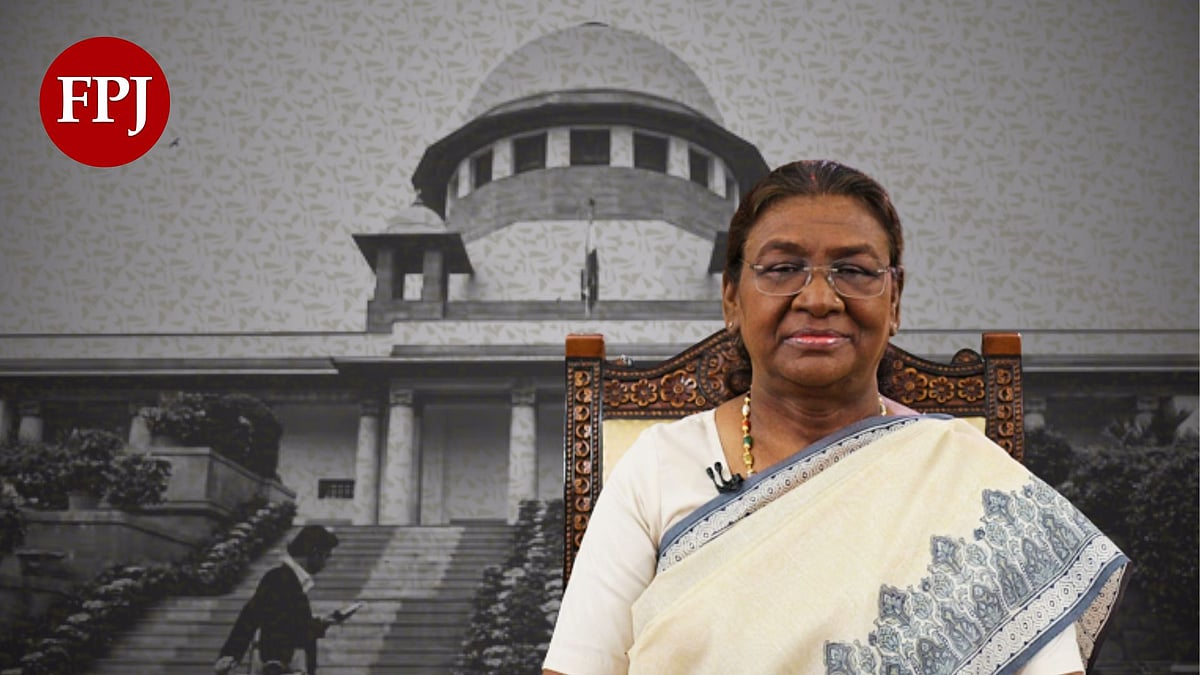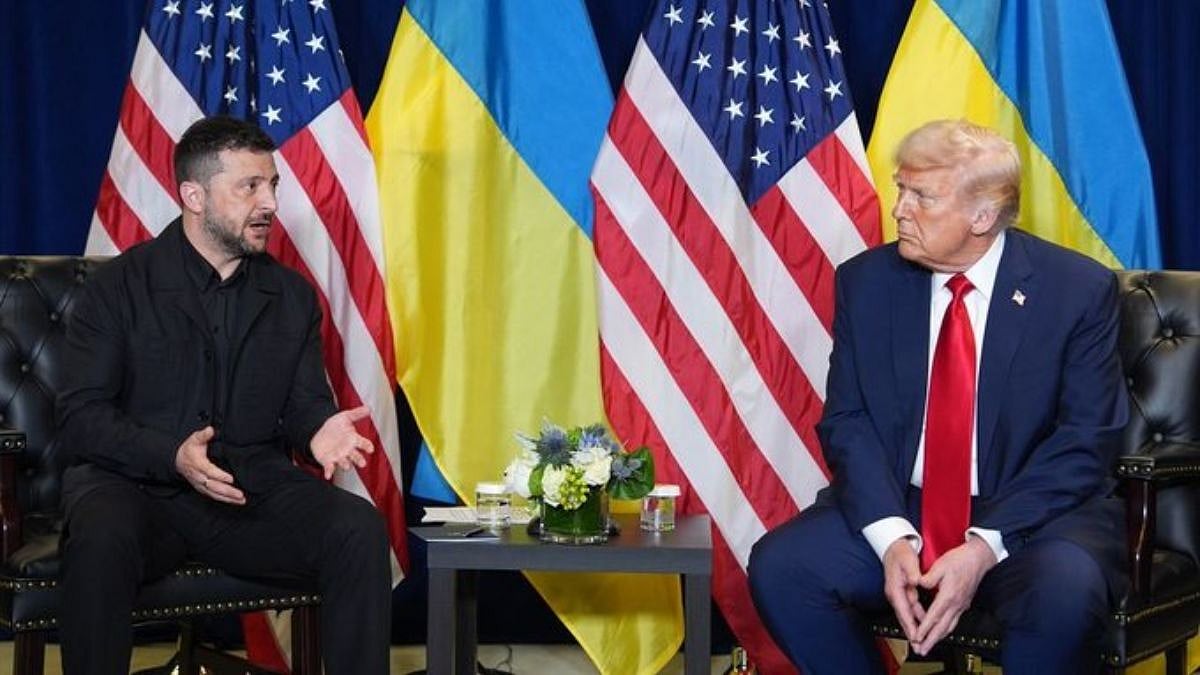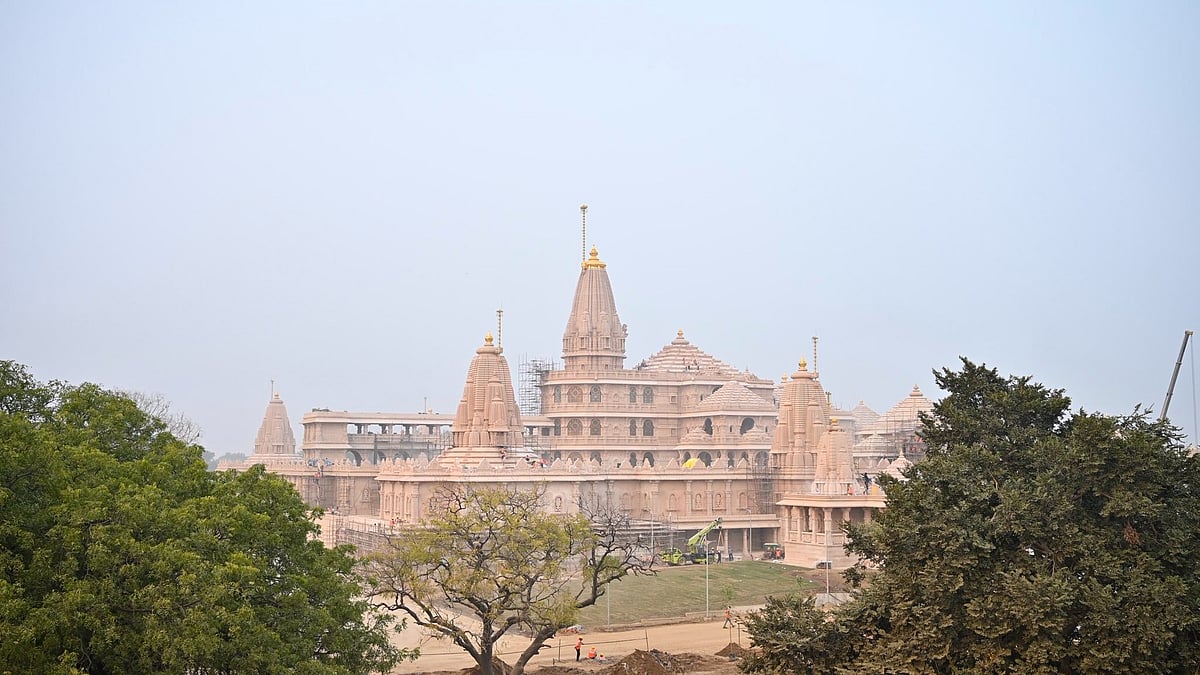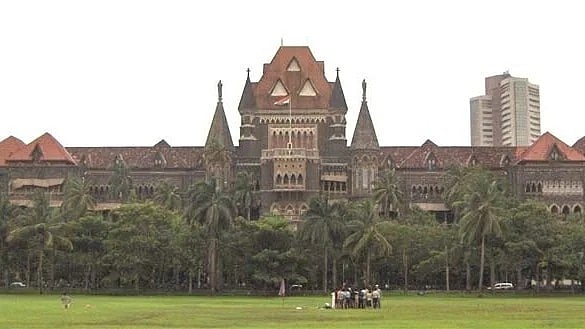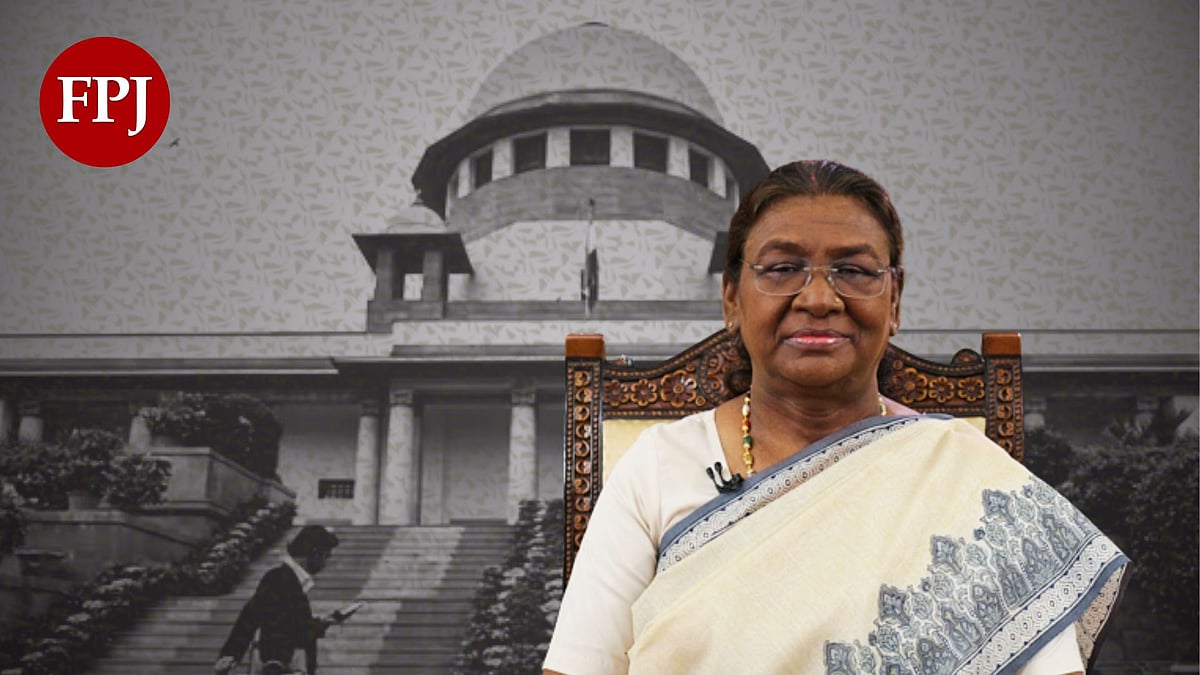Recently, the Supreme Court of India delivered a judgement in State of Tamil Nadu vs. Governor of Tamil Nadu, wherein the issue was that the governor initially refused to sign or assent to the bills approved by the Tamil Nadu Legislative Assembly. Later on, the governor referred the bills to the President of India. The President of India did not assent to the bill, nor did she refer the bill back to the legislative assembly with comments for reconsideration of the bill by the assembly. The non-reference of the bill back to the assembly and not giving assent to the bill became an issue with the government and the governor.
The questions that arise are:
(1) Is the Supreme Court authorised to admit and hear the matter and give judgement on the subject? Can the bill, approved by the Assembly but not assented to either by the governor or the president, be treated or considered to have become the law?
(2) Can the Supreme Court compel the governor or president, under Article 142 of the Constitution, to assent to the bill under the concept of giving full justice, and can it entertain this kind of petition and give judgements?
(3) Is the Supreme Court authorised to entertain a dispute between the legislative assembly and the governor?
Once a bill is introduced and approved by the state legislature, it is referred to the governor of the state for assent under Article 200. On receipt of the approved bill by the state legislature, the governor shall either, as soon as possible, assent to the bill or refer the bill with his comments back to the legislature for consideration or forward/reserve the bill for the consideration of the president. Article 200 of the Constitution says that if the bill is returned to the legislature with the governor's observation, the House might consider the observation or may not consider the observation and again approve the bill and refer it to the governor for his assent. After the bill is referred to the governor for a second time, under Article 200 of the Constitution, the governor has no option but to give his assent to the bill. In the case of Tamil Nadu, the governor initially withheld assent and, subsequently, did not return the bill with a message for reconsideration. On its own, the Tamil Nadu legislative assembly approved the same bill a second time and referred it back to the governor. The question is, how long can the governor withhold its assent? The Constitution states, “as soon as possible on presentation,” but remains silent on the specific time point. The question is, where the Constitution is silent, a constitutional convention or constitutional morality needs to be developed. The legislative assembly is the highest law-making body in the state. The legislative assembly represents the will of the people. The positions of the president and the governor, as outlined in the Constitution, are that of a “Mukhiya”, a constitutional head who has been entrusted with the power to suggest and refer a bill back to the assembly only once. The Constitution itself, in Articles 111 and 200, provides the procedure that needs to be developed in case of conflict between Parliament and the president, and between the state legislature and the governor. On the refusal of either the president or the governor to give assent to the approved bill, the first option available is to move a no-confidence motion against the president in Parliament and against the governor in the legislature on the ground that both have failed to follow the advice tendered by the council of ministers. If the Parliament or the state legislature does not want to follow the first route, the second option is the Parliament or the state legislature, in its own wisdom, should reconsider the bill, and if approved again, the president or the governor has no option but to assent. This constitutional convention, or constitutional morality, introduced and developed by the Tamil Nadu legislature, is not examined in the judgement as to the constitutional validity of the convention or morality.
Now, in a situation where the governor reserves the bill for the president's consideration and the president withholds assent, what must the state legislature do?
On a non-receipt message from the president to the legislature, the legislature can, on its own, take the bill for reconsideration and may either approve it or reject it. However, once a bill is approved for the second time, the president has no option but to assent. However, where the message is received, the legislature shall consider the message within six months. To develop a constitutional convention, or constitutional morality, the legislature should wait for six months before reconsidering the approved bill. The question raised by the president under Article 143 to the Supreme Court concerns the duration for which the president can withhold a bill. The article itself provides the convention or morality to be developed. In this case, the Supreme Court, instead of serving as a court of guidance and helping to create constitutional conventions and morality, has imposed itself as a superhero and the boss of the nation.
The Constitution lays down in Article 246 the subjects on which the Parliament and the state legislature can legislate. In the case of a subject mentioned in the concurrent list, both the state legislature and Parliament can legislate. But in case of conflict between the act of state legislation and the act of Parliament, under article 251, the act of Parliament will prevail.
A question may arise: if the bill is reserved for the president's consideration by the governor, can it be signed by the governor? The Supreme Court in the state of Bihar vs. Kameshwar Singh lays down that a bill reserved for the consideration of the president shall not be assented to by the governor. The other main issue in the tussle between the governor and the legislature is whether the governor can reserve the bill, passed twice by the legislature, for the consideration of the president under Article 200. No doubt the governor is entrusted with the powers to refer on his own with the message to the legislature to reconsider the bill on the given message or reserve the bill for the consideration of the president. The question is when? The time limit to reserve the bill for the reference of the president is till the approval of the same bill a second time. For if the bill is approved for the second time, Article 200 gives no option to the governor but to give his assent to the bill. There is no bar in the Constitution nor in the rules framed by the legislature for the conduct of business in the legislature that the legislature cannot reconsider the approved bill. On approval of the bill the second time, the powers of the governor to refer the bill to the president stand suspended in view of the mandate in the Constitution that if the bill is approved the second time, the governor has no option but to assent to the bill.
In the present case, the president has neither referred the bill to the legislature with a message nor assented to the bill. If the legislature on its own reconsidered the approved bill, on receipt of the reconsidered bill by the legislature to the president, the proviso to article 201 comes into play, which says that the reconsidered bill shall be submitted for consideration of the president. This is one more constitutional convention or constitutional morality developed, based on Articles 87 & 201 of the Constitution, as Article 201 says that the reconsidered bill shall be placed for consideration of the president.
On receipt of the reapproved bill, the president can’t hold the bill in abeyance in perpetuity, as the word ‘use’ is placed before the president for consideration. The article says that if the reconsidered bill is placed before the president for consideration, the question is, from whom should the president take advice? The Constitution provides two alternatives to the president. The first alternative is that the president is duty-bound either to refer the bill to the council of ministers for advice or, under Article 143, refer the subject to the Supreme Court for its opinion. The president having failed to either seek advice from the council of ministers or seek the opinion of the Supreme Court, a constitutional convention and constitutional morality needed to be evolved. In the case of the legislature of the state, where the legislature has either accepted the observation of the president or rejected the same, or the president has neither sent the message nor referred it back to the legislature, and the legislature in its own wisdom reconsidered the approved bill, the principle laid down in Article 111 or in Article 20 will have to be followed. The time limit in these cases is the time the legislature takes to approve the bill the second time. A mere assent to the bill by the president does not make it constitutionally valid; it is presumed to be constitutionally valid. It becomes constitutional upon examination by the Supreme Court.
In case the governor feels that the approved legislation should be placed for the consideration of the president, he is authorised to do so, but the proviso to Article 200 states that only those bills can be referred by the governor to the president that affect the powers of the judiciary and those bills that the governor feels are necessary. Under Article 304, those bills that affect interstate relations or any matter related to intertrade shall be referred to the president for consideration and, lastly, be subject to falling under the concurrent list.
Under Article 201 of the Constitution, once the bill is referred to the president of India for consideration, the president has to act upon it as soon as possible. Under the Constitution, the president cannot act independently but has to act as per the provisions of the Constitution. The first option is to seek the advice of the council of ministers, and the second is to seek the Supreme Court's opinion under Article 143. The president can give assent only after receiving the advice of the council of ministers or the Supreme Court's opinion.
If the president has not assented to the bill, nor has he/she referred it back to the legislature with a message, what are the options with the legislature?
The option is to reconsider the approved bill again. Once the legislative assembly reconsiders the bill without the advice of the president and again adopts the bill, the president has no option but to assent to the bill. As the Constitution did not visualise that a conflict or confrontation would arise in the future between the legislature and the president, it has no provision for that. A constitutional convention or constitutional morality needs to be developed in such a situation, as the conflict is between the legislature and the president/governor. The Constitution does not envisage that the president/governor will act irresponsibly.
From the judgement, the Supreme Court has not considered the issue of jurisdiction. This is the main issue. Under Article 145 of the Constitution, the Supreme Court is authorised to frame rules and regulations for carrying out the work of the Supreme Court. Similarly, the Constitution, under Articles 118 and 208, has empowered the Parliament and state legislature to frame the rules for the conduct of its business in the House. Under Articles 122 and 212 of the Constitution, the proceedings of the House cannot be called for in court, nor can the proceedings of Parliament or legislation be questioned in court. The question is, when does the bill become an act? What method is evolved for communicating between the Parliament/legislature and the president/governor? The other question is, when does the property of the House become the property of the executive or government?
Regarding the rules of conduct for the business of the legislature in Maharashtra, a specific provision is made for communication between the legislature and the state governor. For ready reference, the section is incorporated herein. Rule 152: “The Maharashtra Government Rules of Business and Instruction Issued therein under. When a bill in respect of which the originating House of the assembly and which after it is passed by the council or when a bill is deemed to have been passed or considered to have been passed and signed by the speaker for the submission to the Governor through the secretary to the Government of Maharashtra, law and judiciary department. Other state legislatures also incorporate the same or similar provisions.”
From reading the above section, it is clear that the secretary of the law department is a conduit of communication between the legislature and the governor. Further reading of the section makes it clear that a bill is referred to the governor by the speaker, through the Department of Law, which is the only conduit to place the bill before the governor. In this process, the bill is never handed over to the executive. Only when the bill receives the assent of the governor is the bill/act is no longer the legislature's property. After the grant of assent, the governor communicates directly with the elected executive. From the time and date of communication, the bill becomes an act. Articles 112 and 212 bar the court's jurisdiction. From the prayers and the judgement of the Supreme Court, it is clear that the petition is filed when the bill is pending with the governor. Is the petition barred under Article 212? In the above narration, it is clear that the speaker communicates on behalf of the legislature with the governor. This means that until the governor assents, the bill is the legislature's property. No petition can be filed as long as the bill does not receive the governor's assent.
Secondly, the Supreme Court's original jurisdiction is limited by Articles 32 and 131 to disputes involving the infringement of fundamental rights and disputes between states and unions, or between multiple states and unions, or between one state and another. Can the president's or governor's non-assenting/signing of a bill be called a dispute between the state and the union? The controversy involves the speaker, who represents the legislature, and the governor. Even this aspect is not examined by the Supreme Court. Had it been discussed, it would have been clear that the judgement given by the Supreme Court in the Shibu Soren matter also applies in this case.
Although not the subject matter in the present case, it is related to the case and has not been discussed so far, is the theory of the nation within a nation. Article 105, read in conjunction with Article 122 in the case of Parliament, and Article 194, read in conjunction with Article 212, provide complete immunity to legislative members and the House proceedings. Does it mean that the members of the legislature will be free to do any act in the House? The answer is no. What needs to be noted is that the Constitution distinguishes between a citizen and an elected member. An elaborate arrangement is provided in the Constitution for governing citizens. One such institution is the court. The Constitution itself refrains courts from enquiring into any action of the legislature when the member is in the House. In other words, the hands of law extend up to the legislature's premises. Within the legislature's premises, the courts have no jurisdiction. Does it mean that the elected legislature can go scot-free of any action within the legislative premises? The answer is no. For example, within the House, one of the legislative members abuses another. The question is, can he be punished? If yes, then who is to try the member? Each article uses the same language: “No member shall be liable for any action said or spoken in the House”. Can the affected members take legal action to address the grievance? No. The theory of a nation within a nation means sovereignty within sovereignty. If one sovereign encroaches on another sovereign, it is called an act of war. Similarly, where there is a separation of powers, each must operate within the given limits. This means that although all acts approved by the legislation also apply to the members, the court cannot try them for using foul language. It is the House that has to try and punish the member for any act that is considered illegal. This branch of law is yet to be developed in our legislature.
One way to escape the situation is for the legislature to reapprove the bill if the governor does not assent to it, which leaves the governor with no option but to assent to the bill.
The other option is that, under Article 156(1), the governor holds the office at the pleasure of the president. If the governor fails to execute his constitutional duties, the assembly can approve a resolution addressed to the president, requesting that the governor be recalled and a new governor be appointed. The Tamil Nadu Assembly failed to act under Article 156(1), thereby bringing the entire process to a standstill. (B.P. Singhal v/s Union of India (2010) 6 SSC 331).
The question is, can the Supreme Court compel either the president or the governor to give their assent to the bill under Article 200, given Article 361? As mentioned in the earlier paragraph, the matter is between the legislature and the governor; the court has no jurisdiction. Any order or judgement issued by any court is null and void if it is without jurisdiction. Article 361(1) says that the president and the governor shall not be answerable to any court, which means that the president and the governor shall not be parties to the petition. Furthermore, Article 361 grants the president and governor immunity for any action taken or purported to be taken in exercising their powers and performing their duties. The Supreme Court, in its judgement, mentioned that the principle of natural justice was not followed, as the affected person was not a party to the proceeding; therefore, the judgement will not be binding on the affected person. The Supreme Court does not follow the principle laid down by the Supreme Court. The answer to this is that the Attorney General is always there to protect the president and the governor. The question is, is the Attorney General privy to the advice given by the council of ministers? Article 74(2) states that the advice given by the council of ministers cannot be called in court. If the advice of the council of ministers cannot be called for, then what are the sources of information for the Supreme Court for concluding that the president or the governor has acted unconstitutionally?
Lastly, the Supreme Court lost an opportunity to examine whether, having reserved the bill for the president's reference, the president and the governor become one and the same identity. Article 12 defines “State” to include, in the case of the Union Government, the Government and the Parliament of India, and in the case of the State, the Government and the Legislature of each State. The question that I have raised needs clarification, due to the fact that the governor remains in office till he enjoys the confidence of the president. When the bill is referred to the president by the governor, the governor, by his action and deeds, has handed over the jurisdiction to the president. Are we to then treat only the referred bill, with both the offices as one, in view of the judgement mentioned herein? What has been overlooked is that the “State” in the case of the Union Government includes the Parliament; the same situation prevails for states. The plain reading of Article 12 suggests that the Parliament, the government, and the office of the president form a unified entity, similar to the situation in the states. If the Parliament, Union Government, and the Office of the president are considered the State, then can a separate unit within the definition of the State, as outlined in Article 12, file a petition either under Article 32 or under Article 131? The judgement under examination is filed by “The State of Tamil Nadu Against Governor of Tamil Nadu”. According to Article 12, the term 'state' includes the government of Tamil Nadu, which encompasses the governor of Tamil Nadu within the concept of the state. The Apex court has failed to address the issue as to how one wing of the state can file a writ petition against the other. No provision in the Constitution allows one wing of the state to file a petition against another wing of the state. On these grounds, I differ from the judgement.
Adv. Prakash Ambedkar, (Ex) Member of Parliament.
